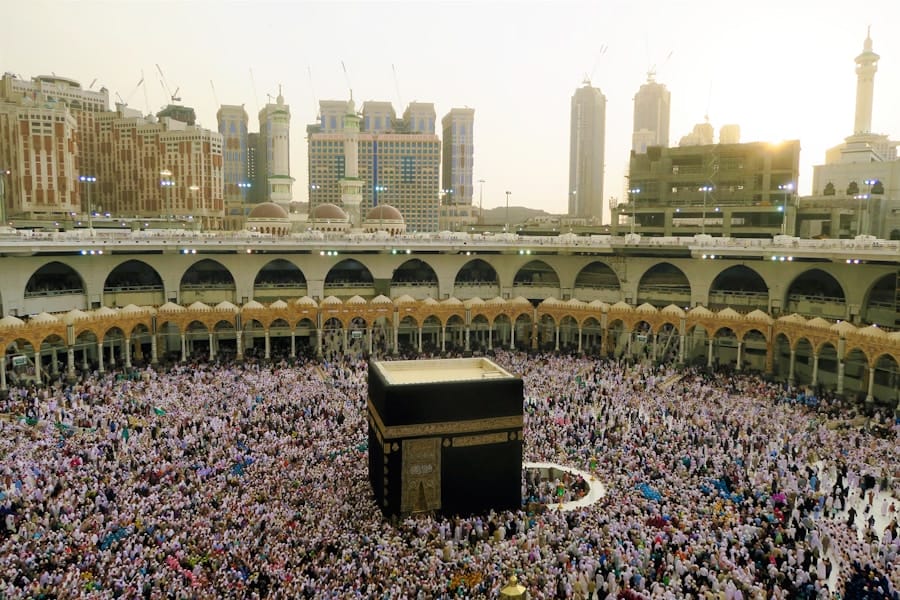The Hajj is an annual Islamic pilgrimage to Mecca, Saudi Arabia, and is one of the five pillars of Islam. Every year, millions of Muslims from around the world travel to Mecca to perform the Hajj, making it one of the largest gatherings of people in the world. In order to participate in the Hajj, pilgrims must obtain a special visa from the Saudi government. The Hajj visa process can be complex and time-consuming, so it’s important to understand the requirements and procedures before applying.
The Hajj visa process is managed by the Saudi Arabian government, and it is designed to ensure that only eligible individuals are able to participate in the pilgrimage. The visa application process typically opens several months before the start of the Hajj season, and it is important to apply early in order to secure a spot. In addition to obtaining a visa, pilgrims must also make arrangements for travel, accommodation, and other logistics, so it’s important to start planning well in advance. Understanding the Hajj visa process is essential for anyone wishing to participate in this important religious journey.
Eligibility and Requirements for US Citizens
In order to be eligible for a Hajj visa, US citizens must meet certain requirements set by the Saudi government. First and foremost, pilgrims must be Muslim, as the Hajj is a religious pilgrimage reserved for followers of Islam. In addition, pilgrims must be in good health and physically able to perform the rituals of the Hajj. The Saudi government also requires that pilgrims be of a certain age, typically 18 years or older, although there may be exceptions for younger individuals who are accompanied by a guardian.
In addition to these general requirements, US citizens must also meet specific criteria set by the Saudi government for obtaining a Hajj visa. This may include providing proof of their Muslim faith, such as a letter from a local mosque or Islamic organization, as well as a valid passport with at least six months of validity remaining. Pilgrims may also be required to provide evidence of their travel plans, including flight and hotel reservations. It’s important for US citizens to carefully review the eligibility and requirements for obtaining a Hajj visa before beginning the application process.
Applying for the Hajj Visa
The process of applying for a Hajj visa can vary depending on the individual’s country of residence. For US citizens, the first step is typically to contact the Saudi embassy or consulate in their area to inquire about the visa application process. The embassy or consulate can provide information on the required documents and forms, as well as any specific procedures that must be followed. It’s important to start this process early, as obtaining a Hajj visa can take several weeks or even months.
Once US citizens have gathered all of the necessary documents and information, they can begin the visa application process. This typically involves completing an online application form and submitting it along with the required supporting documents. In some cases, pilgrims may be required to appear in person at the Saudi embassy or consulate for an interview or to provide additional information. It’s important to carefully follow all instructions provided by the embassy or consulate in order to ensure that the visa application is processed smoothly.
Important Documents and Forms
When applying for a Hajj visa, US citizens will need to gather several important documents and forms in order to complete their application. These may include a valid passport with at least six months of validity remaining, as well as a completed visa application form. Pilgrims may also be required to provide proof of their Muslim faith, such as a letter from a local mosque or Islamic organization confirming their membership and good standing within the community.
In addition to these documents, US citizens may also need to provide evidence of their travel plans, including flight and hotel reservations. The Saudi government may also require pilgrims to provide a recent passport-sized photograph, as well as a copy of their US residency permit if they are not US citizens. It’s important for pilgrims to carefully review the list of required documents and forms provided by the Saudi embassy or consulate in order to ensure that they have everything they need to complete their visa application.
Tips for a Smooth Visa Application Process
Obtaining a Hajj visa can be a complex and time-consuming process, but there are several tips that can help US citizens navigate the application process more smoothly. First and foremost, it’s important to start the visa application process early in order to allow plenty of time for processing. The Saudi government typically begins accepting visa applications several months before the start of the Hajj season, so it’s important to apply as soon as possible.
In addition, US citizens should carefully review all of the eligibility and requirements for obtaining a Hajj visa before beginning the application process. This can help ensure that they have all of the necessary documents and information ready when it comes time to apply. Pilgrims should also be prepared to follow any specific procedures or instructions provided by the Saudi embassy or consulate in their area, as failing to do so could result in delays or complications with their visa application.
Navigating the Visa Interview
In some cases, US citizens applying for a Hajj visa may be required to appear in person at the Saudi embassy or consulate for an interview. This interview is typically conducted to verify the pilgrim’s eligibility and ensure that they meet all of the necessary requirements for obtaining a Hajj visa. It’s important for pilgrims to prepare for this interview by reviewing all of the required documents and information, as well as any specific instructions provided by the embassy or consulate.
During the visa interview, US citizens should be prepared to answer questions about their travel plans, their Muslim faith, and any other relevant information related to their pilgrimage. It’s important to be honest and forthcoming during the interview, as providing false information could result in their visa application being denied. Pilgrims should also be prepared to provide any additional documentation or information that may be requested by the embassy or consulate in order to support their visa application.
Final Steps and Preparing for the Hajj Journey
Once US citizens have obtained their Hajj visa, there are several final steps that must be completed before embarking on their pilgrimage. This may include making arrangements for travel, accommodation, and other logistics related to their journey to Mecca. Pilgrims should also familiarize themselves with the rituals and requirements of the Hajj in order to ensure that they are fully prepared for this important religious journey.
In addition, US citizens should also take steps to ensure their health and safety during the Hajj. This may include obtaining any necessary vaccinations or medications recommended for travel to Saudi Arabia, as well as purchasing travel insurance that covers medical emergencies and other unexpected events. Pilgrims should also make sure that they have all of the necessary supplies and provisions for their journey, including appropriate clothing and footwear for the rituals of the Hajj.
In conclusion, obtaining a Hajj visa can be a complex and time-consuming process, but with careful planning and preparation, US citizens can navigate the application process more smoothly. By understanding the eligibility and requirements for obtaining a Hajj visa, gathering all of the necessary documents and forms, and following any specific procedures provided by the Saudi embassy or consulate, pilgrims can increase their chances of successfully obtaining a visa for this important religious journey. With careful preparation and attention to detail, US citizens can ensure that they are fully prepared for their pilgrimage to Mecca and have a safe and fulfilling experience during the Hajj.

